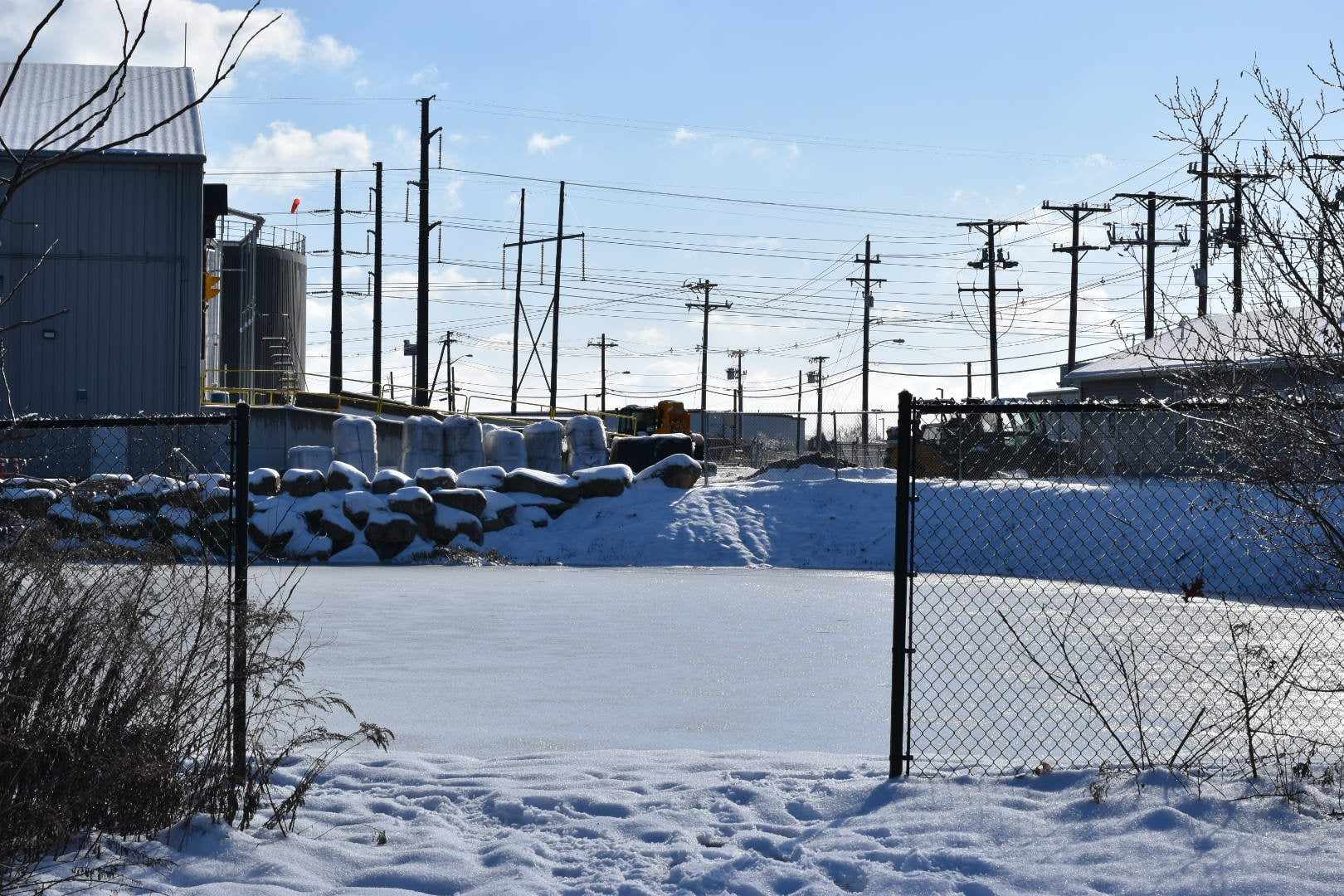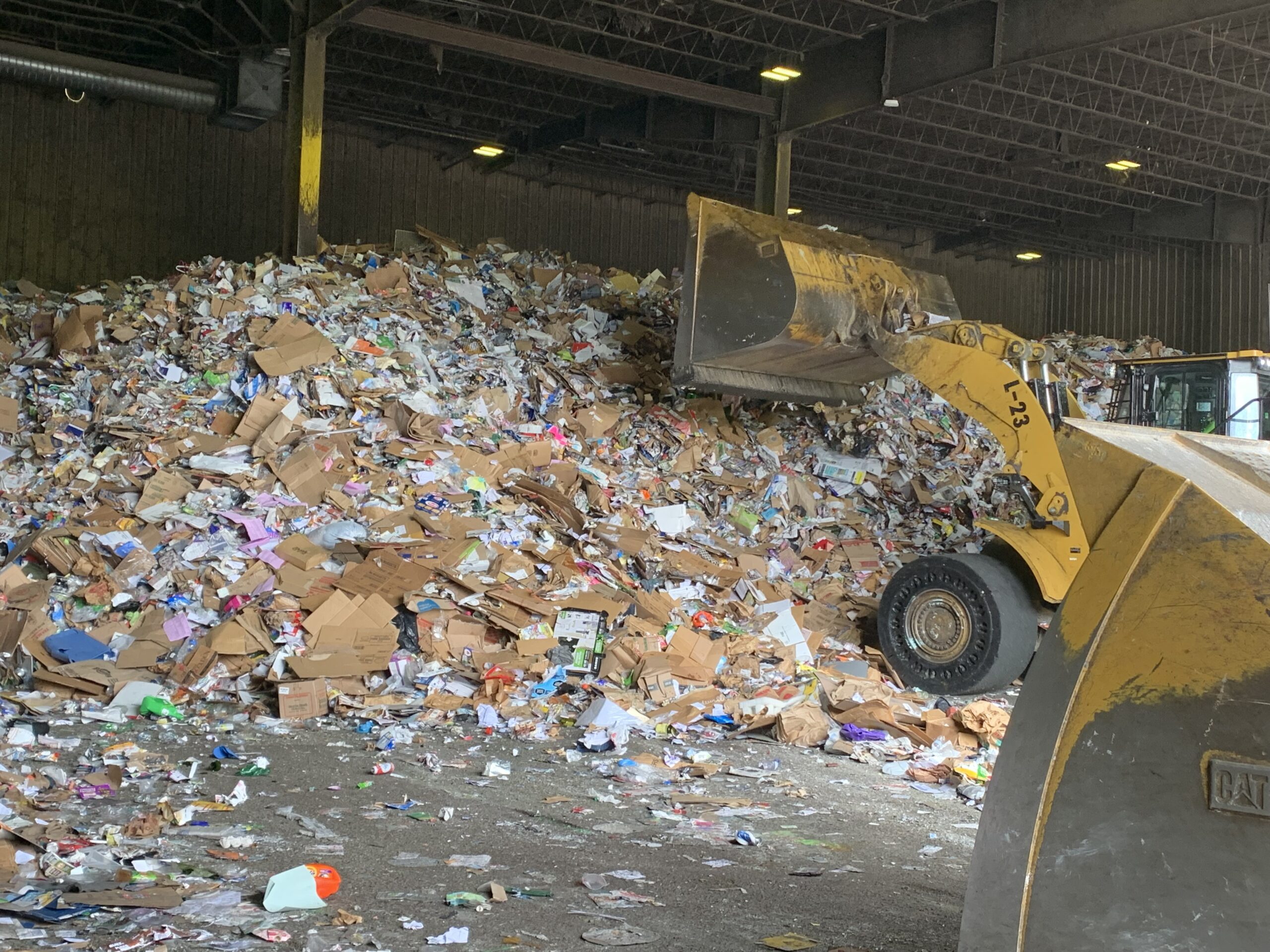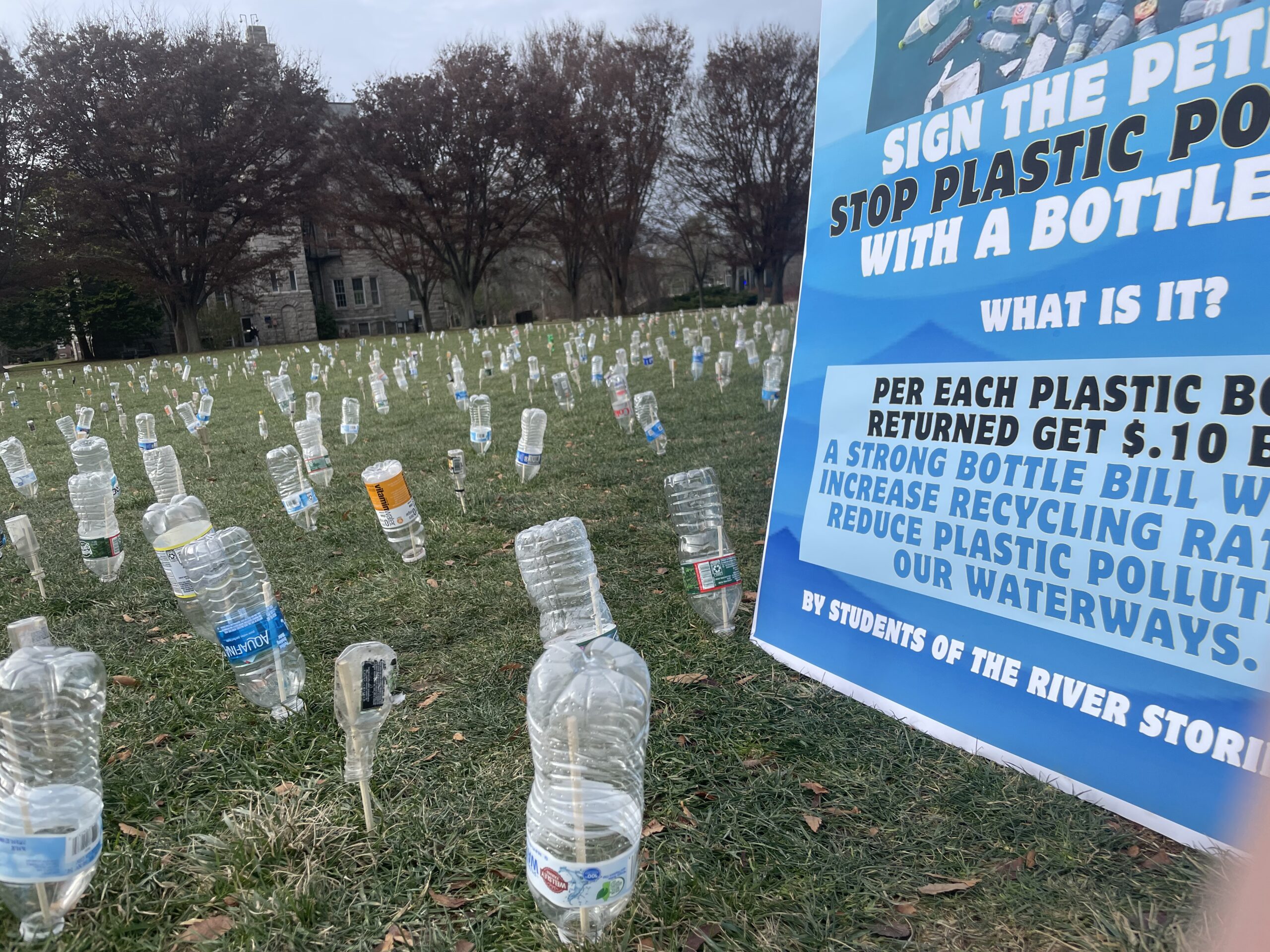Veteran Composter Unhappy About Buried Waste
January 12, 2010
CHARLESTOWN, R.I. — On many occasions, Michael Merner has walked out of an environmental meeting carrying a teabag wrapped in a napkin. For a man who understands and appreciates the benefit of organic matter, he finds it frustrating when composting is ignored.
“There’s no waste in nature,” said the longtime farmer. “We shouldn’t be wasting this stuff. The health of the soil is the foundation for our own health.”
For three decades, Merner has played the role of an organic alchemist, making a living turning elephant and horse manure, fish heads and tails, wood chips, straw shavings, yard waste and seaweed into nutrient-rich compost.
On three acres of his 30-acre Earth Care Farm, which sits in a residential neighborhood at the edge of town, Merner annually turns about 10,000 cubic yards of lawn clippings and leaves, herbivore animal manures and fish guts into roughly 2,000 cubic yards of what many of his wholesale customers call “black gold.”
The benefits of organic compost include increased soil fertility, better balanced soil pH and improved chemical makeup of the soil. It also creates a healthy habitat for microorganisms, and increases drainage, aeration and water holding capacity of the soil — all factors that help plants better withstand weather extremes and disease.
“The compost industry is as old as the hills,” Merner said. “It’s not rocket science, but we’re only scratching the surface on the materials we should be recycling. We’re a wasteful society. We need to better respect the organic matter that sustains us.”
There is a movement underway in Rhode Island to address that problem.
The Providence Urban Agriculture Task Force and the Environment Council of Rhode Island have been awarded a U.S. Department of Agriculture grant to find out how to remove food waste from the Ocean State’s trash stream and use it to create something similar to Merner’s black gold.
This Friday, Jan. 15, an invitation-only meeting is being held at The Rhode Island Foundation, in which 45 or so stakeholders will exchange ideas about implementing curbside composting as a way to the strengthen the local food system.
Merner has been invited, and he is interested in hearing the various takes on the idea, but he is cautiously optimistic about the sudden interest in composting. The idea has been floated before, he said, with meager results.
“I’m excited this meeting is happening, but we’ve had meetings before going back thirty years about composting in New England, in Massachusetts, in Rhode Island,” Merner said. “Nothing has happened. URI doesn’t even compost their cafeteria food scraps.”
He said the younger generation seems ready to embrace composting, but the old system that remains in place is hard to supplant. “The status quo clings with great tenacity,” Merner said. “We’ve been dumping valuable matter into landfills for decades. It’s an environmentally, socially and economically expensive practice.”
Composting can be done
To make curbside composting a reality statewide or in individual communities, Merner said the proper infrastructure needs to be in place and, more importantly, people need to be educated about the proper ways to source separate materials.
Earth Care Farm has tried several pilot programs, including one with a major supermarket chain and another with a group of restaurants from a Connecticut town. None of these attempted composting programs worked, mainly because employees didn’t separate the food waste properly.
“It was a nightmare,” Merner said. “The supermarket staff would throw lettuce still covered in cling wrap, watermelons still sitting in their foam trays and plenty of glass into the compost that was being shipped to us. With the restaurants, we could have been in the silverware business with the amount of knives and forks that were tossed in with the food waste. We even had some champagne canisters thrown out with the stuff we got.”
While Merner believes curbside composting can work, he said the best way to keep food waste from being buried at the Central Landfill in Johnston would be if some entrepreneur started a small trucking company that went around the state picking up food waste at school cafeterias, restaurants and grocery stores.
He said compost farmers such as himself would charge low tipping fees to receive clean source-separated food scraps.
“That’s how pig farmers used to go get the stuff to feed their pigs,” Merner said. “Restaurants, supermarkets and cafeterias have untapped potential for some serious composting.”
For a statewide curbside composting program to work, Rhode Island would need to create multiple composting facilities across the state, Merner said. Each site, he said, would need to feature different compost quality standards based on the source-separation abilities of the area the facility covered.
“There are a lot of uses for poorer-quality compost,” Merner said.
An involved process
When Merner first got started, he ran a traditional landscaping and lawn-care business, traditional in the sense that in the early 1970s the standard method of caring for lawns was similar to the lawn-care approaches of today — using a considerable amount of chemical pesticides, herbicides and fertilizers.
Concern over his chemical use grew and, as a result, he spent much of his time seeking environmentally friendly ways of caring for lawns without having to rely on harsh, toxic chemicals. As a result, Merner’s interest in sustainable agriculture grew and he soon began using compost on the farm’s vegetable gardens.
By the mid-1980s, Earth Care Farm was organic certified.
“I got tired to seeing all the synthesized chemicals and pesticides that were in use becoming banned and restricted,” Merner said. “I started looking for a more natural way of doing things. I learned you could have real healthy soil without all those chemicals.”
He began making more compost for use in his landscaping business. As his clients’ lawns, gardens and flowerbeds sprang to life, demand for his compost increased and Merner decided to concentrate on compost.
Today, Earth Care Farm compost operations pay the bills.
During a recent morning visit to the farm, steam evanesces off a pile of black gold — even as the temperature outside hovers in the high 20s. Despite some light snow that morning and the chilly temperature, there is no snow on the steaming pile.
Inside this nutrient-rich mound of matter dancing with microorganisms, the temperature will reach 160 degrees. The steam is the byproduct of microorganism activity. It also means Merner is making another quality batch of organic gold.
Two shipments he received that morning will play a vital role in creating more healthy compost. Moments after one waste hauler had dumped a load of liquid gurry — in this case a batch of squid ink and blood from a local fish-processing plant — another hauler soon drives in carrying 8 tons of squid heads, tails and innards.
Eventually, these shipments of squid waste and other compost protein, such as manure and food waste, will be mixed together with compost carbohydrates, such as straw bedding, leaves and wood chips.
For the next few months, this mixture will be turned frequently with one of the farm’s two payloaders — they run on Newport Biodiesel fuel — which will allow microbes to convert the two kinds of waste into dark, nutritious soil that will hold water and nourish plants.
To keep a foul odor from wafting through the neighborhood, Merner has to keep on top of 96 pages of regulations regarding putrescibles.
“There’s a science to composting,” Merner said. “Good compost that is properly mixed is food to microorganisms. And just like we do, they want a balanced diet.”
The heat created by microorganism activity sterilizes the soil by killing weed seeds and disease spores.
“Nature has an abundance of material to compost, but we bury it,” Merner said.
Categories
Join the Discussion
View CommentsYour support keeps our reporters on the environmental beat.
Reader support is at the core of our nonprofit news model. Together, we can keep the environment in the headlines.
We use cookies to improve your experience and deliver personalized content. View Cookie Settings



